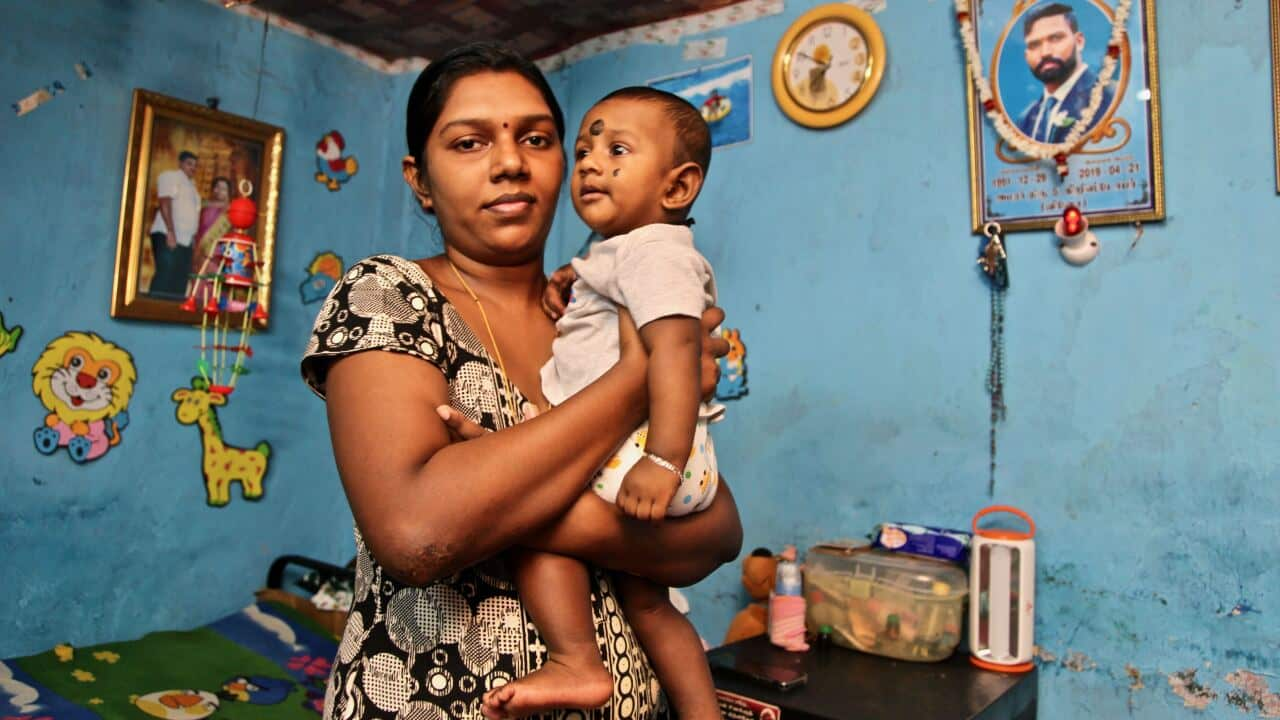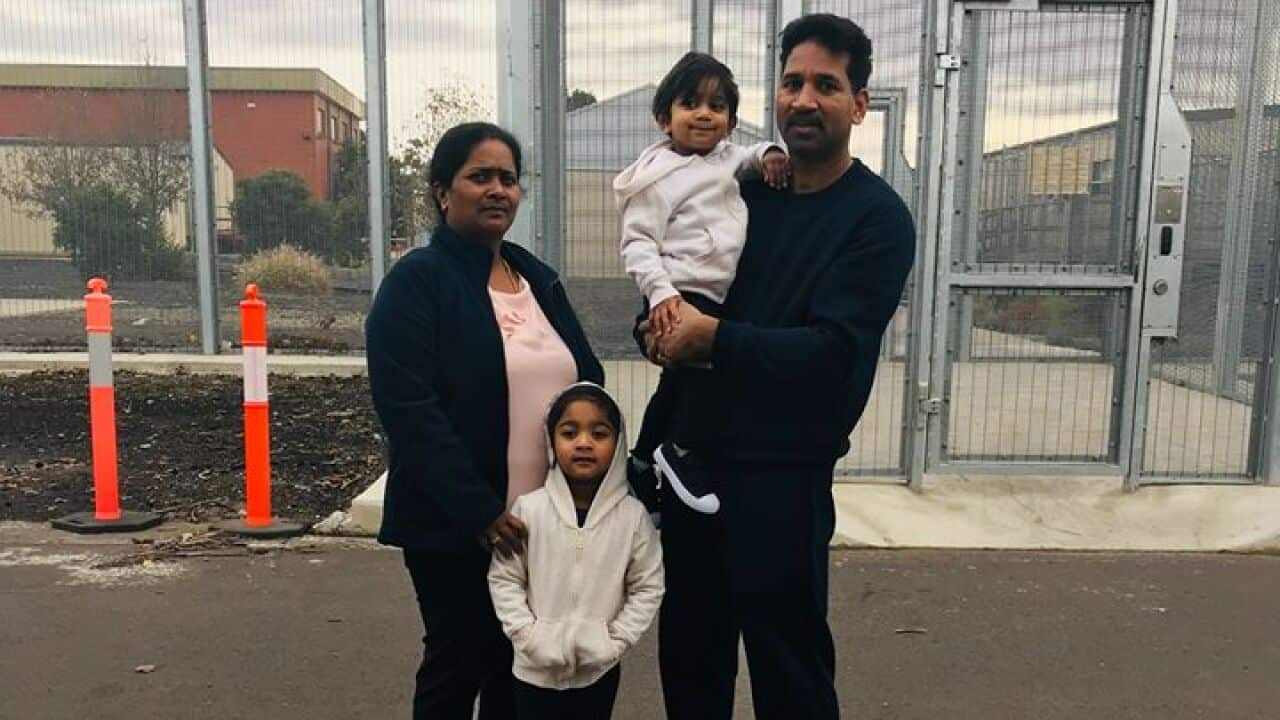Polls have opened in Sri Lanka's presidential election after weeks of campaigning that largely focused on national security and religious extremism in the backdrop of the deadly IS-inspired suicide bomb attacks on Easter Sunday.
Nearly 16 million of the island nation's 22 million people were eligible to vote in Saturday's election and choose a new president from a record 35 candidates.
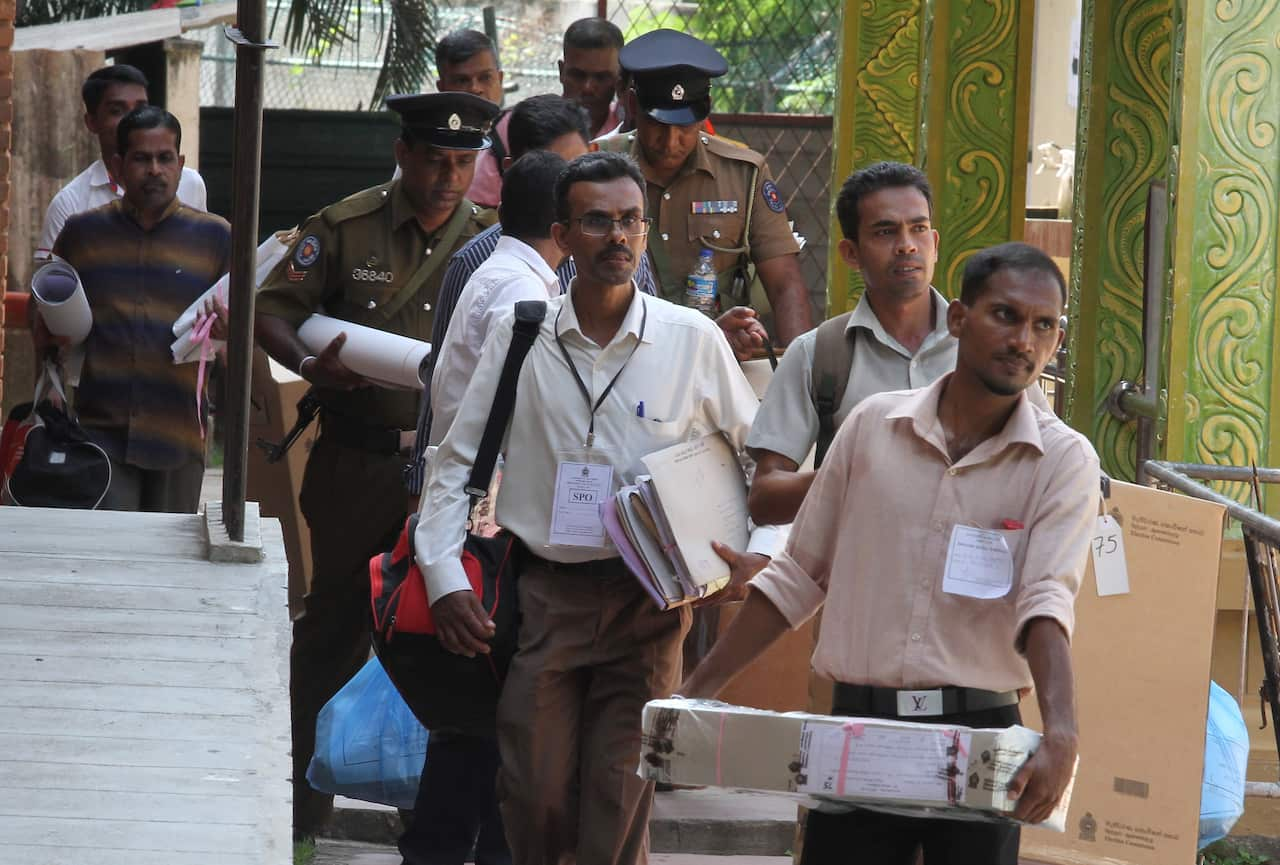
Millions of registered voters will cast their ballots during the country's presidential election. Source: EPA
, with gunman attacking a convoy of buses carrying minority Muslim voters in northwest Sri Lanka.
There were no immediate reports of casualties, but a police official said the attackers had burnt tyres on the road and set up makeshift roadblocks to ambush the convoy of more than 100 vehicles.
"The gunmen opened fire and also pelted stones," a police official in Tantirimale, 240 kilometres (150 miles) north of Colombo said. "At least two buses were hit, but we have no reports of casualties."
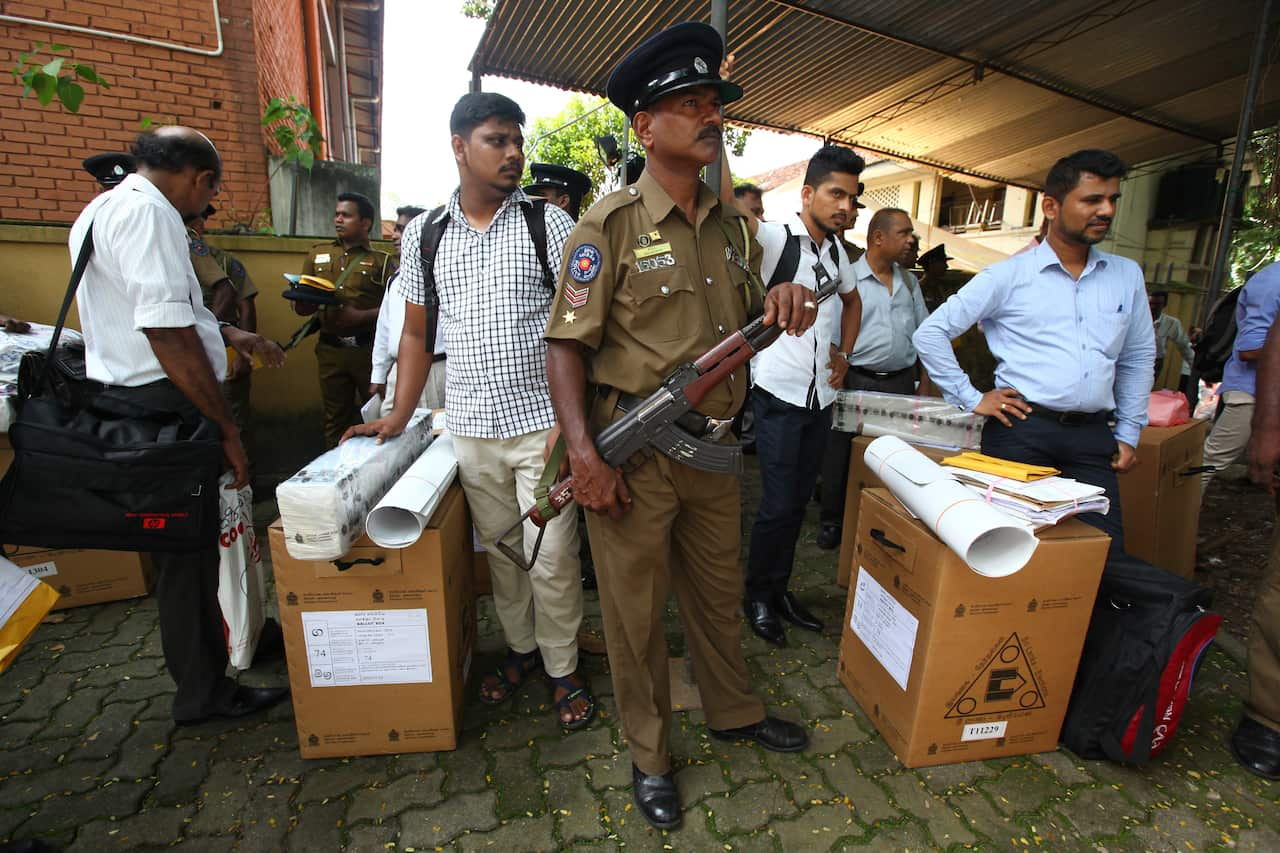
Security personnel escort Sri Lankan polling officers carrying election materials as they leave for their polling booths. Source: EPA
Muslims from the coastal town of Puttalam were travelling to the neighbouring district of Mannar, where they were registered to vote, the police official said.
Police reinforcements rushed to the area and cleared the obstructions on the road and escorted the convoy so that passengers could cast their ballots.
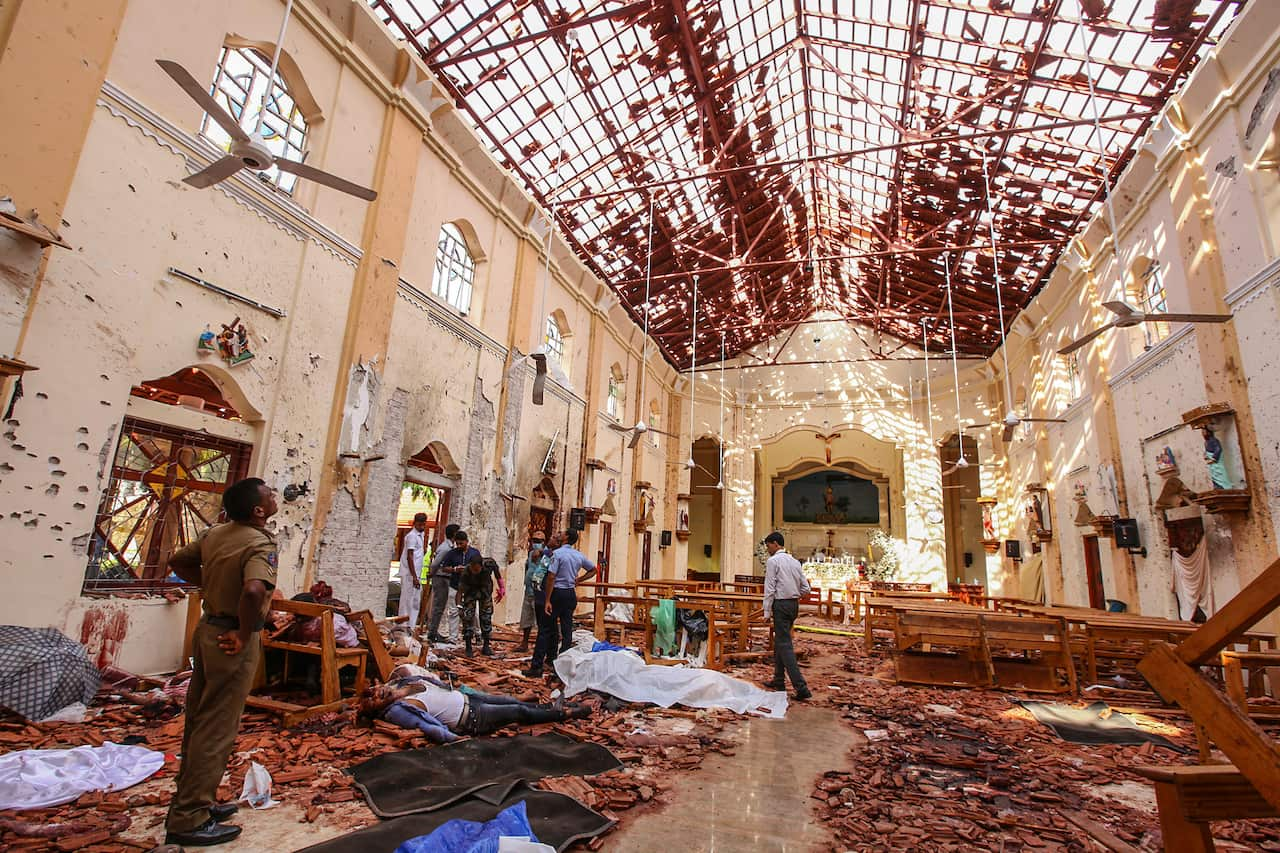
The aftermath of the Easter bombing attacks inside St. Sebastian's Church, Negombo, north of Colombo. Source: AP
The incident came as police and troops were locked in a tense standoff in the Tamil-dominated northern peninsula of Jaffna where residents complained of military roadblocks ahead of voting.
Election results are expected as early as Sunday.
President Maithripala Sirisena, who was elected in 2015, is not seeking reelection. Gotabaya Rajapaksa, 71, a former defence official under his brother, ex-President Mahinda Rajapaksa, was widely expected to triumph over 52-year-old ruling party Housing Minister Sajith Premadasa.
A decade of peace following nearly 30 years of civil war was shattered earlier this year when home-grown militants pledging loyalty to the IS group detonated suicide bombs at three churches and three hotels, killing 269 people.
Mr Rajapaksa cast himself as the only candidate capable of protecting Sri Lankans from such attacks.
But as the election approached, the race became very close.
The Rajapaksa brothers are revered by Sri Lanka's Sinhalese Buddhist majority for defeating the Tamil Tiger rebels in 2009.
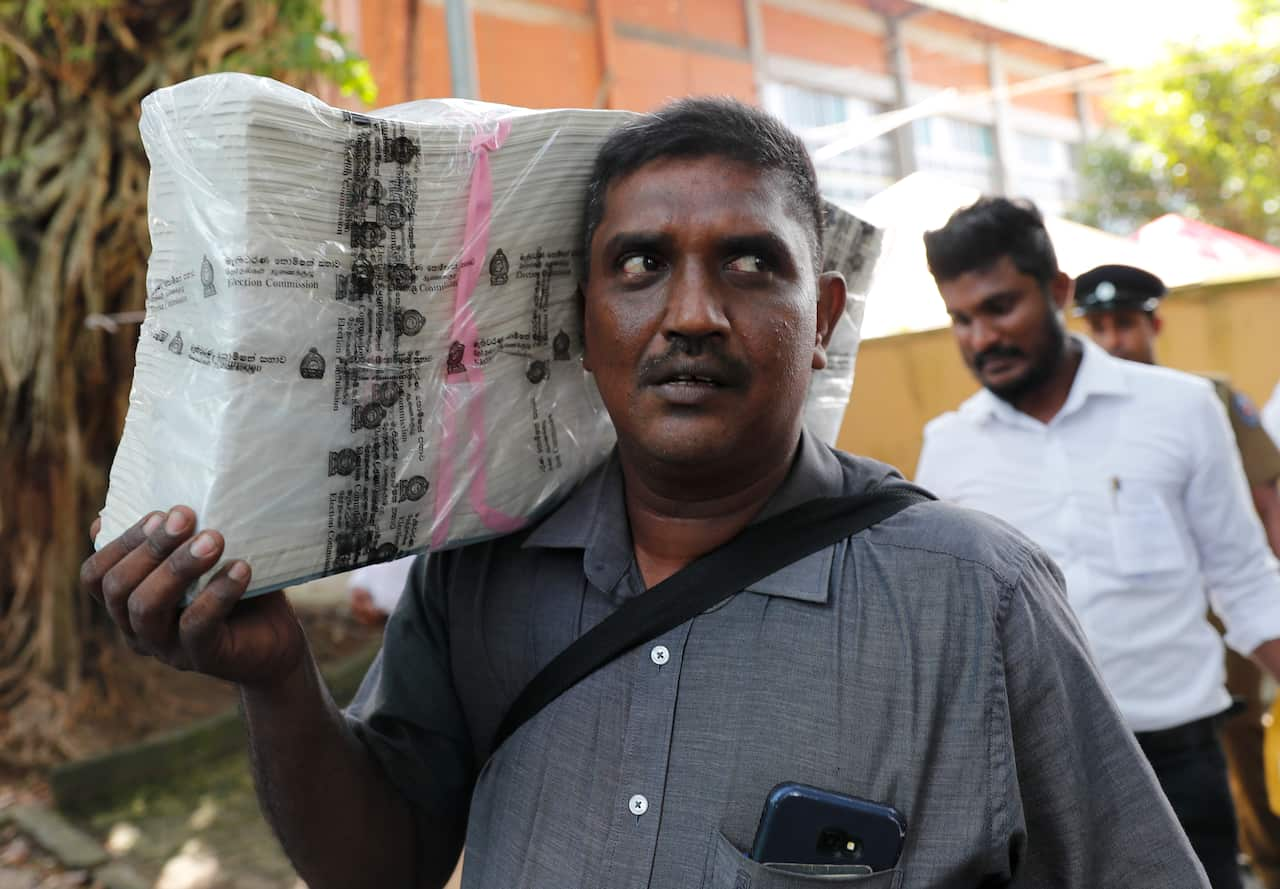
A Sri Lankan polling worker carries ballot papers outside a polling material distribution center in Colombo. Source: AP
Because of their heavy-handed rule during and after the war, some minorities fear their return.
Mr Gotabaya is accused of persecuting critics and overseeing what were called "white van squads" that whisked away journalists, activists and Tamil civilians suspected of
Some were tortured and released, while others simply disappeared. The Rajapaksa brothers are also accused of condoning rape and extrajudicial killings and deliberately targeting civilians and hospitals during the war.
Mr Premadasa, the son of a former president who was assassinated by a Tamil Tiger suicide bombing, has gained support in recent weeks by promising to expand welfare programs and bringing disgruntled party stalwarts into the fold.
Because the Rajapaksas maintained emergency laws after the war ended, curtailing civil liberties, Mr Premadasa and his supporters have warned that Sri Lankans could lose freedoms if the brothers return to power, a line of rhetoric that helped a coalition of political foes led by Sirisena defeat Mahinda Rajapaksa in 2015 elections.
Voters started trickling in early at a polling station guarded by armed police in Dehiwala, a suburb of the capital Colombo.
With wires...

